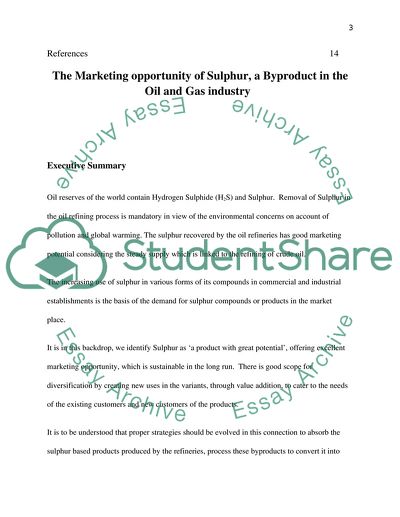Cite this document
(“The Marketing Opportunity of Sulfur, a Byproduct in the Oil and Gas In Coursework”, n.d.)
The Marketing Opportunity of Sulfur, a Byproduct in the Oil and Gas In Coursework. Retrieved from https://studentshare.org/marketing/1738202-the-marketing-opportunity-of-a-new-product-in-the-oil-and-gas-industry
The Marketing Opportunity of Sulfur, a Byproduct in the Oil and Gas In Coursework. Retrieved from https://studentshare.org/marketing/1738202-the-marketing-opportunity-of-a-new-product-in-the-oil-and-gas-industry
(The Marketing Opportunity of Sulfur, a Byproduct in the Oil and Gas In Coursework)
The Marketing Opportunity of Sulfur, a Byproduct in the Oil and Gas In Coursework. https://studentshare.org/marketing/1738202-the-marketing-opportunity-of-a-new-product-in-the-oil-and-gas-industry.
The Marketing Opportunity of Sulfur, a Byproduct in the Oil and Gas In Coursework. https://studentshare.org/marketing/1738202-the-marketing-opportunity-of-a-new-product-in-the-oil-and-gas-industry.
“The Marketing Opportunity of Sulfur, a Byproduct in the Oil and Gas In Coursework”, n.d. https://studentshare.org/marketing/1738202-the-marketing-opportunity-of-a-new-product-in-the-oil-and-gas-industry.


